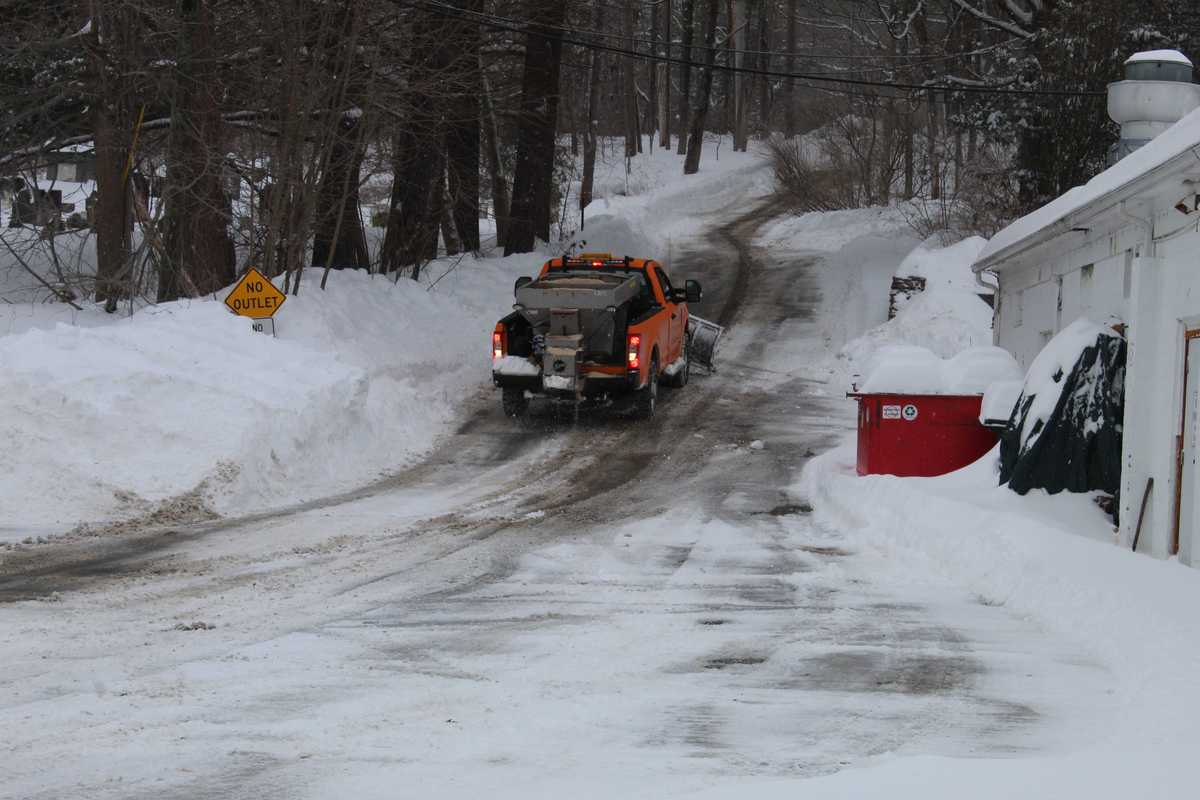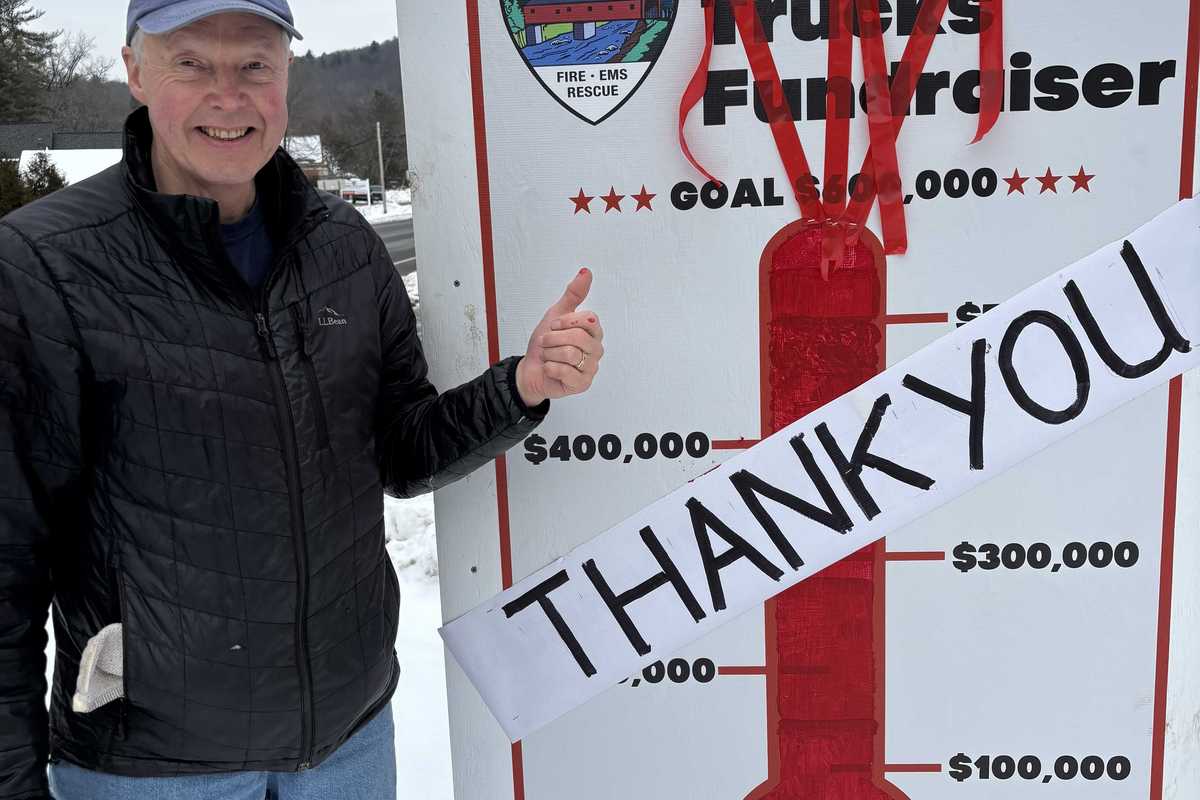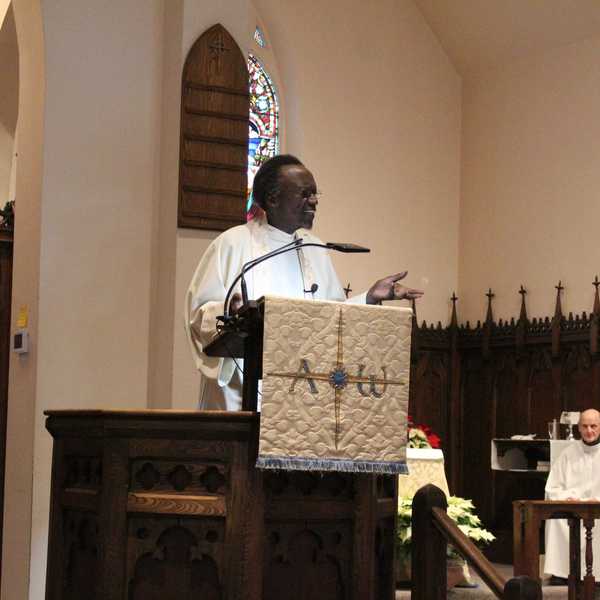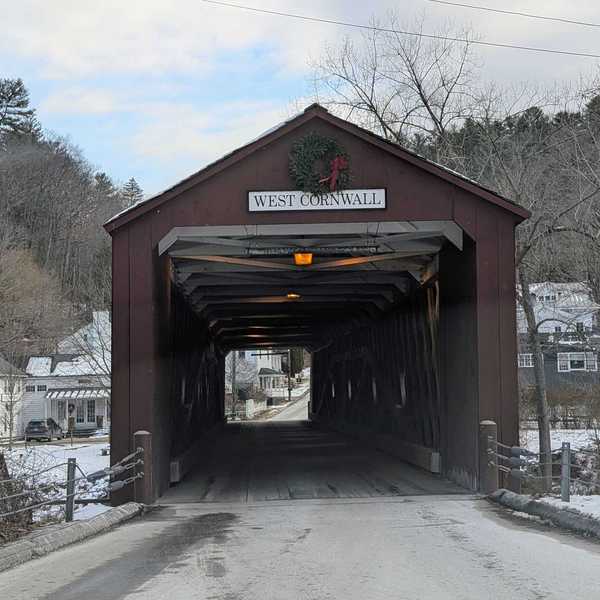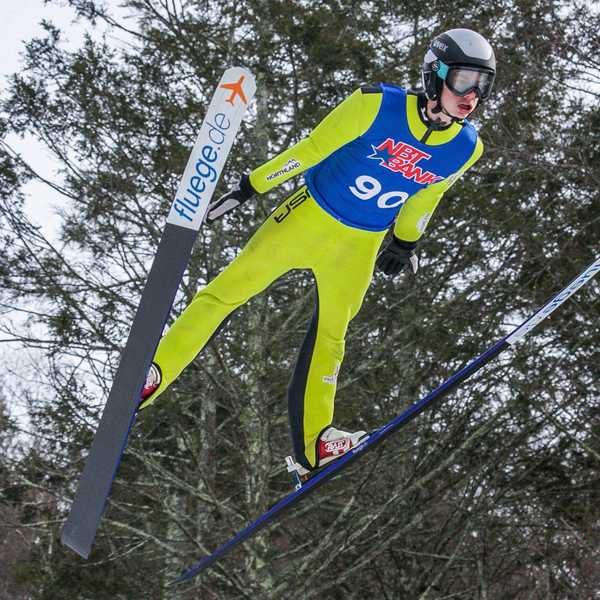Latest News
The Salisbury town crew out plowing and salting Monday morning.
By Patrick L. Sullivan
FALLS VILLAGE — A powerful winter storm dumped more than 18 inches of snow in parts of the Northwest Corner of Connecticut Sunday, Jan. 25, testing town highway departments that were well prepared for the event but already straining under the cost of an unusually snowy season.
Ahead of the storm, Gov. Ned Lamont declared a state of emergency and urged residents to avoid travel as hazardous conditions developed Sunday and continued into Monday. Parts of the region were hit with more than 18 inches, according to the National Weather Service, with heavy, persistent bands falling all day Sunday and continuing into Monday morning.
Schools, municipal offices, churches and numerous community events were canceled or postponed through Monday as plowing operations continued and temperatures dropped into the single digits overnight.
Despite the severity of the storm, local officials said preparation efforts helped keep roads passable and emergency services operating — though many towns acknowledged the financial toll of repeated storms this winter.
“In December, we had seen as much snow as all of winter last year,” North Canaan First Selectman Jesse Bunce said Friday, before the storm arrived, citing conversations with his highway crew. “Our salt budget is getting thin, and costs like this are tough. But we have to do it no matter what happens. Public safety comes first.”
Bunce said the town had likely exceeded its snow-removal budget even before the weekend storm. Crews logged nearly 30 hours during the Jan. 17–18 weekend alone, he said, after back-to-back storms required repeated plowing and salting.
“A typical snowstorm might mean a four-hour route for our crews — three or four inches that stops overnight, allowing them to head out early in the morning,” Bunce said. “But when storms drag out, it really lengthens the work.”
North Canaan employs four full-time highway workers, with an additional employee on call for larger storms. Bunce said the town has some reserve funds and expects to shift money within the budget to cover overruns.
Falls Village First Selectman Dave Barger said his town is facing similar pressures.
“We will be over budget,” Barger said Friday. “We have used more salt this season than we used all last year — and we’re only halfway through the winter.”
Several officials pointed to a recent rain-to-freeze cycle as particularly costly, turning snow into inches of ice that required heavier treatment. Some towns adjusted their salt usage by mixing materials to conserve supplies. North Canaan, for example, has used a blend of roughly two-thirds salt and one-third sand, Bunce said. Salt currently costs about $120 per ton, compared to roughly $20 per ton for sand.
Kent First Selectman Eric Epstein said his town entered the storm well stocked and operationally ready. “The highway department has been busy and has gone through a lot of material this year,” Epstein said Friday. “We’ve had deliveries, we’re well stocked, and the trucks are in good shape. There has been an increase in costs, but so far, it’s within the budget. We’ll see if this pattern continues.”
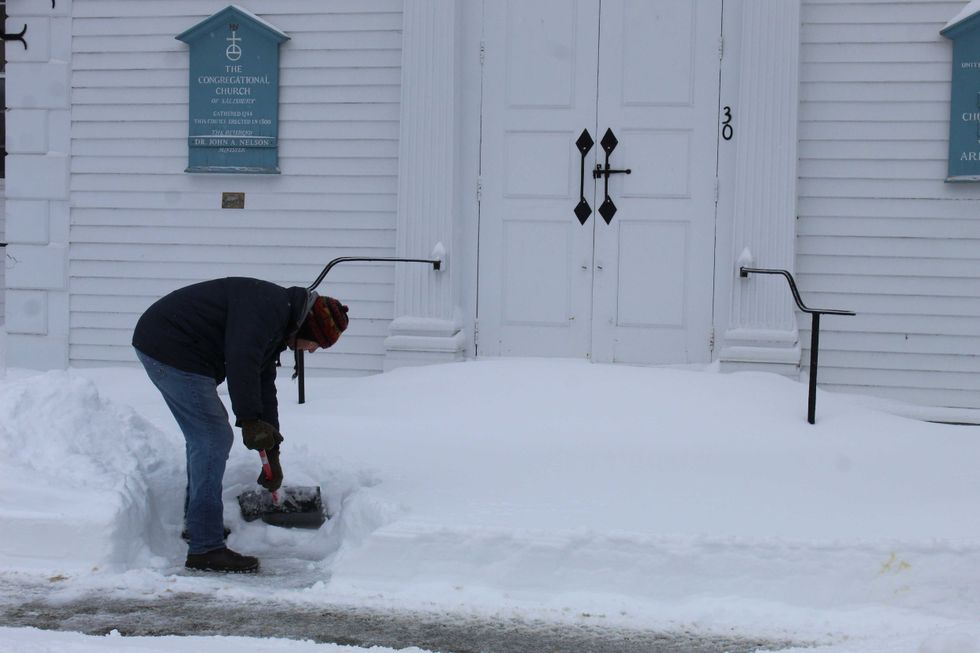
Salisbury First Selectman Curtis Rand said Thursday that highway crews were prepared, while Sharon First Selectman Casey Flanagan also reported that his town had taken steps to be ready for prolonged snowfall and extreme cold.
Beyond road conditions, the storm triggered broader cold-weather planning at the state level.
On Wednesday, Jan. 21, Lamont’s office announced that Connecticut’s Cold Weather Protocol would go into effect ahead of the storm’s arrival, activating coordination between state agencies and municipalities.
The protocol is designed to protect vulnerable populations during periods of life-threatening cold, including arranging transportation to warming centers and shelters when needed. Residents seeking shelter were urged to visit 211ct.org or call 2-1-1 for assistance.
Municipalities also reached out directly to residents. The Town of Cornwall circulated an advisory email urging people to check on neighbors and vulnerable residents and reminding them of the town’s Storm Safety Check-In program, which provides advance notice of major weather events and wellness checks when necessary.
As crews continued plowing into Monday, local leaders said the storm underscored both the importance — and the growing cost — of winter preparedness.
"A year like this, with so much activity, it’s inevitable,” Bunce said. “We anticipate going over budget. But we’ll take it as it comes and keep the roads safe.”
With additional reporting by Patrick L Sullivan
Keep ReadingShow less
CVFD reaches fundraising goal for new fire trucks
Provided
CORNWALL — At the recommendation of the Cornwall Volunteer Fire Department, on Jan. 20 the Board of Selectmen voted to move forward with the purchase of two new trucks.
Greenwood Emergency Vehicles, located in North Attleboro, Massachusetts, was chosen as the manufacturer. Of the three bids received, Greenwood was the lowest bidder on the desired mini pumper and a rescue pumper.
CVFD’s Ian Ridgway sat on the truck committee and said Greenwood was not just chosen for the price, but also for the design of each vehicle. He said their models had a shorter wheelbase and more ground clearance, as well as extra storage space on board, compared to the next best bid.
After $100,000 in discounts offered by Greenwood, the combined purchase price for both vehicles was shown to be $1,200,408. The delivery time was estimated at 15 months.
CVFD raised $600,000 during its recent fundraising campaign, of which $500,000 will be given to the town to buy the trucks. That figure will be paired with $720,000 in town truck fund reserves. The additional donated funds will be used to outfit the trucks with equipment and tools.
“I want to praise the town of Cornwall,” said CVFD President Dick Sears. “We’re able to buy these beautiful new pieces of equipment courtesy of the tremendous citizenry of this town.”
Keep ReadingShow less
Robin Lee Roy
Jan 21, 2026
FALLS VILLAGE — Robin Lee Roy, 62, of Zephyrhills, Florida, passed away Jan. 14, 2026.
She was a longtime CNA, serving others with compassion for more than 20 years before retiring from Heartland in Florida.
Robin loved the beach, sunshine, and gardening, and was known for her strength, humor, and unwavering support of those she loved.
She is survived by her daughter, Sierra R. Zinke, and brothers, Darren Roy and Todd Roy.
She was preceded in death by her parents, Sharon Thomkins Roy and Robert Roy, and her brother Nevin Roy.
No services will be held at this time.
Keep ReadingShow less
Marjorie A. Vreeland
Jan 21, 2026
SALISBURY — Marjorie A. Vreeland, 98, passed away peacefully at Noble Horizons, on Jan. 10, 2026.She was surrounded by her two loving children, Richard and Nancy.She was born in Bronxville, New York,on Aug. 9, 1927, to Alice (Meyer) and Joseph Casey, both of whom were deceased by the time she was 14. She attended public schools in the area and graduated from Eastchester High School in Tuckahoe and, in 1946 she graduated from The Wood School of Business in New York City.
At 19 years old, she married Everett W. Vreeland of White Plains, New York and for a few years they lived in Ithaca, New York, where Everett was studying to become a veterinarian at Cornell. After a short stint in Coos Bay, Oregon (Mike couldn’t stand the cloudy, rainy weather!) they moved back east to Middletown, Connecticut for three years where Dr. Vreeland worked for Dr. Pieper’s veterinary practice.In Aug. of 1955, Dr. and Mrs. Vreeland moved to North Kent, Connecticut with their children and started Dr. Vreeland’s Veterinary practice. In Sept. of 1968 Marjorie, or “Mike” as she wished to be called, took a “part-time job” at the South Kent School.She retired from South Kent 23 years later on Sept. 1, 1991.Aside from office help and bookkeeping she was secretary to the Headmaster and also taught Public Speaking and Typing.In other times she worked as an assistant to the Town Clerk in Kent, an office worker and receptionist at Ewald Instruments Corp. and as a volunteer at the Kent Library.
“Mike” loved the sun, sand and water and spent many summers at Westport Point, Massachusetts with the kids and their best friends, the Bauers.She was the consummate hostess, and a wonderful cook.She also appeared in several plays with The Sherman Players and also a show or two on special occasions at The Kent Community House.She took enjoyment from working outdoors doing chores around her home in North Kent.She lived in that house until she sold it and bought a condominium on North Main Street in Kent in May of 2003.She lived in the condo until 2018 after which her light began to fade and her last 8 years were spent comfortably at Noble Horizons.
“Mike” leaves behind her children, Richard (Susan) of Lakeville, her daughter Nancy Rutledge (Jim) of Salisbury; two grandchildren, Chandra Gerrard (Sean) of Litchfield, Matthew (Larissa) of Lakeville; three great grandchildren, Addison, Emilia and Everett, all of Lakeville.
She was predeceased by her beloved granddaughter Caroline in 2020.
All services are private.The Ryan Funeral Home, 255 Main St., Lakeville, is in charge of arrangements.
To offer an online condolence, please visit ryanfhct.com
Keep ReadingShow less
loading
